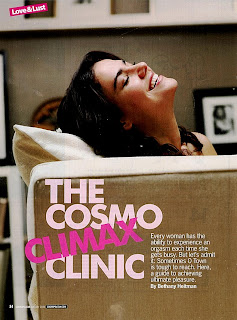
As writers we make our living with words (or we try like heck and hope to). Words can be used in so many ways besides novels and short stories, and that’s the topic for today’s Playground blog – Plays on Words.
I’ve always liked jokes that use words to create the humor. Puns have long been a favorite of my mom’s and she has a stack of books devoted to puns. In my research over the last few days, I discovered there are three types of puns. Homographic puns make use of multiple meanings from a single spelling. For example, did you hear about the man who impulsively got a cat despite his allergies and later realized it was a rash decision? And homophonic puns use similar sounds with different spellings. It's been said that seven days without laughter makes one weak.
My favorite is pun jokes that go beyond the one-liner.
Once upon a time, a Wisconsin baseball team acquired a pitcher named Milt Famey. As it was, Milt had signed an endorsement deal with a local brewery and was provided a lifetime supply of their product. And boy, did Milt use the product. One day, a game went into extra innings and Milt was called on to pitch. He had been partaking of his endorsement product and was a bit wobbly on the mound. In the bottom of the sixteenth inning, he walked four batters to load the bases and then walked in the winning run. After the game, a reporter commented that he’d seen cans of beer in the bullpen where Milt had been warming up. A player from the opposing team grinned and replied, “Yeah, that’s the beer that made Milt Famey walk us.”
Or…
The friars were behind on their belfry payments, so they opened a small florist shop to raise funds. Since everyone likes to buy flowers from men of God, the rival florist thought this was unfair. He asked the good Fathers to close, but they wouldn’t. He went back weeks later and begged them to close, and they ignored him. So the rival florist hired Hugh MacTaggart, the roughest thug in town to persuade them to close shop. Hugh beat up the friars and trashed the shop, saying he’d return if they didn’t close their doors once and for all. They were terrified and immediately went out of business, which proves that Hugh and only Hugh can prevent florist friars.
Puns aren’t the only ways to play with words.
Malapropisms (named after Mrs. Malaprop, a character in a play by R.B. Sheridan) are the unintentional and humorous misuse of a word. Mrs. Smith wanted to learn to speak better so she signed up for electrocution lessons.
Spoonerisms switch the initial sound of two or more words. It is often kistomary to cuss the bride. Or, last Sunday night the Saints dealt the Colts a blushing crow.
Palindromes are the spelled the same backwards and forwards. Obvious ones are the words mom, level and kayak. More clever, however, are whole sentences, such as “A man, a plan, a canal, Panama.” In palindrome sentences, punctuation and spaces are not taken into consideration, as in the one above. However, Napoleon supposedly uttered one that does not discard them: Able was I ere I saw Elba.
Tom Swifties play on a relationship between an adverb, and an action spoken in dialogue. We all know that good writers never use adverbs, so we’d never write something like, “I’d love some Chinese food,” said Tom wantonly. Or “I need a pencil sharpener,” said Tom bluntly.
Oxymorons combine contradictory words like jumbo shrimp, deafening silence, definite maybe, unbiased opinion, original copies, pretty ugly and exact estimate.
Tongue twisters are audible plays on words that don’t deliver a message but exist to trip up the speaker. How many of you grew up reciting about Peter Piper and his pickled peppers, seashells by the seashore or rubber baby buggy bumpers? Here’s one I found, but don’t try it in public.
I am a pheasant plucker,
I'm a pheasant-plucker's son,
I will be plucking pheasants
'till the pheasant plucker comes.
Redefinition is giving new meaning to an existing word. The Washington Post has a yearly contest where readers can submit alternative meanings for common words. Among the 2009 winners were:
Coffee (n), the person upon whom one coughs
Negligent (adj), absentmindedly answering the door in your nightgown
Esplanade (v), to attempt an explanation while drunk
Balderdash (n), a rapidly receding hairline
Pokemon (n), a Rastafarian proctologist
I’m not sure how the following are classified, but I found them worthy of a chuckle.
If a pig lost its voice would it be disgruntled?
Would a cardboard belt be a waist of paper?
Would writing with a broken pencil be pointless?
Are tennis players cold-hearted because love means nothing to them?
And last, but definitely not least are the humorous church signs found across the country.




Do you like word play? Share some with us!



























